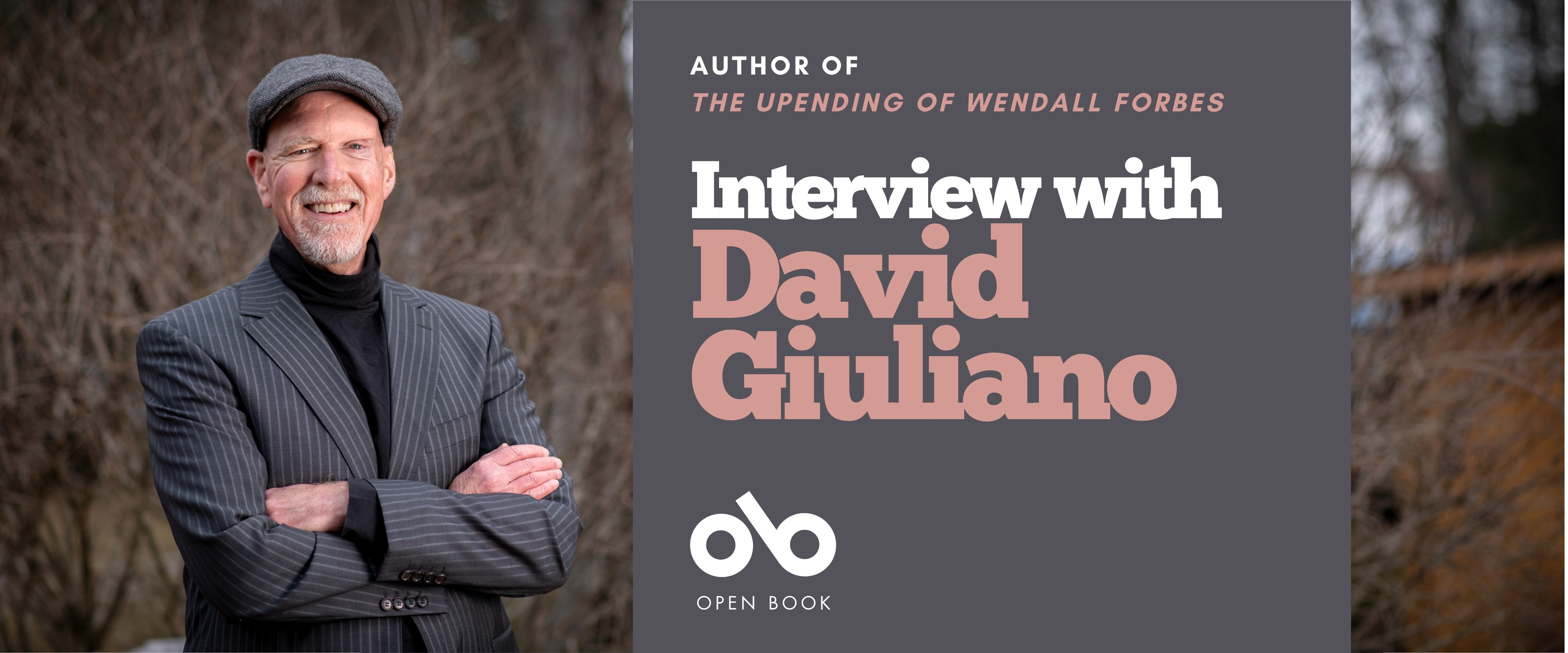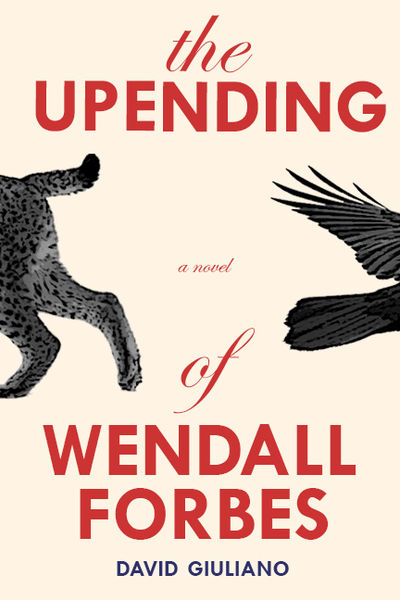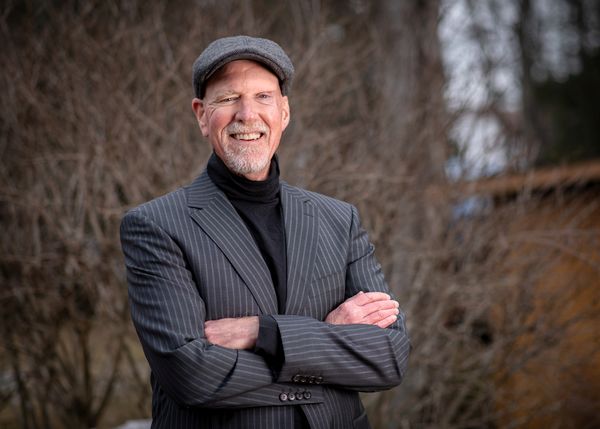A Snowstorm Sets Upon a Small Town and Reveals the Powerful Bonds of Community in THE UPENDING OF WENDALL FORBES
In his latest novel, David Giuliano delivers a warm, funny, and deeply human story about aging, resilience, and the surprising ways life can be renewed. Wendall and Ruby Forbes are grappling with sleepless nights, loneliness, and the unsettling fear that Ruby may be showing signs of dementia. Just when the weight of these worries threatens to overwhelm them, a fierce blizzard sweeps through their small town and transforms their quiet home into an unexpected sanctuary.
The storm brings with it an unforgettable cast of strangers: an Indigenous Colombian refugee and his partner, a young man on an accidental quest, a teenage activist and her younger brother, and even a sleep consultant all the way from Indianapolis. Each arrives with their own hopes and burdens, and together they create a household buzzing with stories, laughter, and surprising revelations. With warmth and sharp insight, Giuliano shows how chance encounters can spur renewal and remind people of the bonds that sustain them.
Brimming with heart, humour, and hope, The Upending of Wendall Forbes (Latitude 46 Publishing) is a novel that celebrates community in all its unexpected forms. Between a foul-mouthed raven, the quiet watch of a lynx, and the joy of newfound companionship, Wendall and Ruby discover that there is always room for light and laughter, even in the stormiest seasons of our lives.
Open Book:
Do you remember how your first started this novel or the very first bit of writing you did for it?
David Giuliano:
There is a scene in the novel when Wendall, a elderly man, has left a wicker basket on the stove top, and his wife, Ruby, accidentally turns on the burner under the basket. A fire and frantic extinguishing ensue. It happened first in our kitchen. Pearl, my beloved, and I were in our early sixties and teasing one another about what lay ahead as we aged. “I’m going to keep a list of this stuff,” I told her, “to make sure we aren’t losing it.”
I began to think about the many challenges of aging – loneliness, the possibility of dementia, the betrayal of our bodies and, for boomers, the colossal environmental and economic failures of our generation. That was the seed that grew in the soil of my imagination.
OB:
How did you choose the setting of your novel? What connection, if any, did you have to the setting when you began writing?
DG:
The Upending of Wendall Forbes, like my first novel, The Undertaking of Billy Buffone, takes place in Twenty-Six Mile House, an imaginary small, isolated community in northern Ontario, on the shores of Lake Superior. It is a heavily fictionalized version of the town of Marathon, Ontario, where I have lived for nearly forty years. I know well its cultures, relationships, challenges, struggles and beauty.
James Joyce said, “For myself, I always write about Dublin, because if I can get to the heart of Dublin, I can get to the heart of all the cities of the world. In the particular is contained the universal.”
Your CanLit News
Subscribe to Open Book’s newsletter to get local book events, literary content, writing tips, and more in your inbox
My novels are set in a small, particular place that I love, and sometimes hate. In my writing, I try to uncover something universal in this small, specific place that transcends geographic limitations.
OB:
Did the ending of your novel change at all through your drafts? If so, how?
DG:
Yes, it did change. During the editing process, I was unhappy with the ending. It felt too tied up with a bow. As a reader, I appreciate stories that end slightly unfinished, stories that invite the reader to imagine where things will go next.
I added a final chapter about Wendall returning to his writing after a dry spell, feeling the futility of his voice in the world. However, for the first time, he begins to write fiction. Without giving too much away, I can say he started a story about Lonesome Gateway, a prairie farmer whose horses have escaped from their corral (a metaphor for dementia that appears earlier in the novel when Wendall is visiting an old friend in the hospital). Gateway pulls up a chair and sits down in his yard to watch his horses cavort on a low hill, as the sun rises. He wonders what they will do, where they will go. Wendall ends this first chapter with the words “The Beginning.”
OB:
Did you do any specific research for this novel? Tell us a bit about that process.
DG:
I researched the clinical and recreational use of psychedelic drugs in the 1960s and 1970s. LSD and psilocybin were used to treat addiction and mental illnesses, as a pathway to enlightenment by people like Timothy Leary, and as a tool for “brainwashing” by the CIA in experiments like those carried out at the Allen Institute in Montreal. The research primarily involved searching for credible journal articles online. I also had the opportunity to take high-dose psilocybin in a safe, clinical environment as part of a study measuring the impact of psychedelics on palliative care patients.
OB:
Who did you dedicate your novel to, and why?
DG:
The Upending of Wendall Forbes is dedicated: “For my beloved Pearl, with whom I hope to grow old.” Pearl and I have been married for forty-four years and have been a couple for fifty years. We started dating in high school in Windsor, Ontario. We’ve shared many chapters and stages of life. In a sense, we grew up together. I began writing this novel thinking about what it will be like to grow old together. Wendall and Ruby are fifteen to twenty years older than we are. So, their fictional story is, in part, a projection of my hopes and fears into the future. Of course, in the writing, they became unique characters, bearing little resemblance to us, as far as their personalities and life events go.
OB:
Did you include an epigraph in your book? If so, how did you choose it and how does it relate to the narrative?
DG:
I wanted to use a quote by Leonard Cohen, about the greatest responsibility as we age being to keep one’s heart open. Wendall and Ruby shelter a group of strangers—an Indigenous Colombian refugee, his wife, an environmental academic and their child; a young man on an accidental journey quest; a teenage activist and her ten-year-old gay half-brother; and a sleep consultant in Indianapolis—during a blizzard. Like their home, they are trying to keep their hearts open. Unfortunately, we were unable to get permission from the magazine that published the Cohen quote to use it.
The epigraph I settled on is a quote from Paul’s first letter to the Thessalonians 5.1-2: “Now concerning the times and the seasons, brothers and sisters, you do not need to have anything written to you. For you yourselves know very well that the day of the Lord will come like a thief in the night.”
The snowbound strangers, silence, a foul-mouthed raven and a talking lynx arrive like thieves in the night, surprising and inspiring Wendall and Ruby with renewed hopefulness.
Postapocalyptic literature is, not surprisingly, given climate change and the state of the world, very popular these days. Writing The Upending of Wendall Forbes, I imagined a small, warm crucible of community, kindness and hope amidst the storms and blizzards of dystopian narratives that stalk the world.
______________________________________
David Giuliano is an award-winning writer of fiction and non-fiction. His first novel, The Undertaking of Billy Buffone (Latitude 46, 2021), was awarded the 2022 Bressani Prize for Fiction. It’s Good to Be Here: Stories We Tell About Cancer is a memoir about the power of story to heal. Postcards from the Valley, a collection of essays, was a Canadian bestseller. He has also published two illustrated children’s books. David lives on the north shore of Lake Superior.






